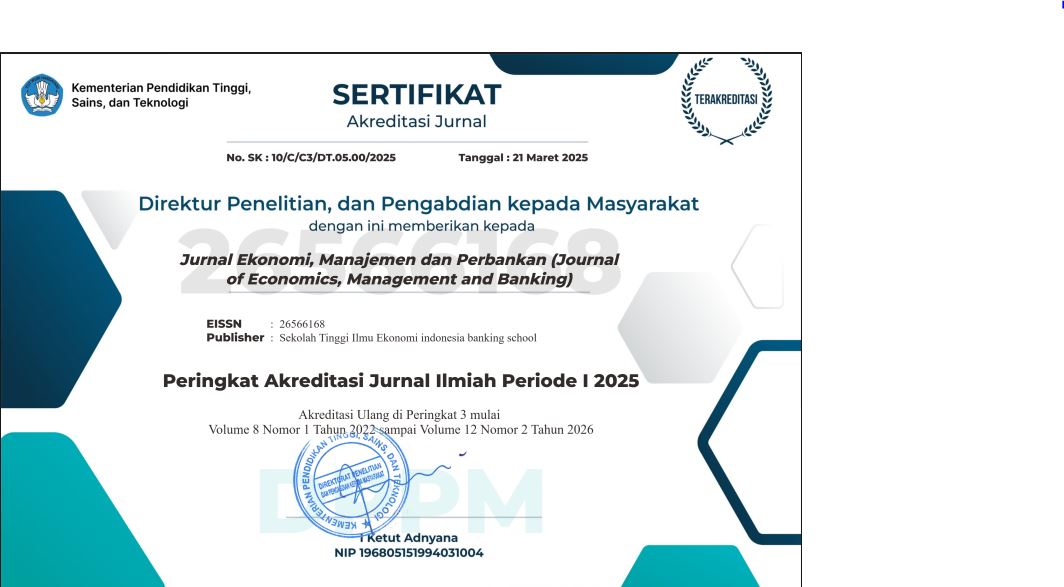Pengaruh Penerapan IFRS (PSAK 50/55) terhadap Price to Book Value Saham-Saham Perbankan di Indonesia
DOI:
https://doi.org/10.35384/jemp.v4i2.133Keywords:
IFRS, financial instruments, banks financial assets, PBV, ROE, Leverage, Assets Size, IFRS for fixed assetsAbstract
Implementation of IFRS (PSAK 50/55, accounting standards for financial instruments) in the Indonesian banking industry, has changed the assets valuation from historical cost to fair value method, that increases the value of banks' assets. The increase in asset value due to accounting changes, without any increase in economic value banks' assets, may result in a decrease in Price to Book Value (PBV) of banks' stock in Indonesia. This research shows that the implementation of IFRS has caused a decreasing of PBV of banks' stocks in Indonesia, after controlling Return on Equity (ROE), Leverage and Assets Size, the three factors that are previously known for effecting the PBV. Meanwhile, for manufacturing companies, the implementation of IFRS is presumed not to cause a decrease of PBV, because manufacturing companies have a very small portion of financial assets compared to fixed assets. The implementation of IFRS on fixed assets (PSAK 16) still allows manufacturing companies to choose between historical cost and revaluation method in recognizing their fixed assets. This research shows that the implementation of IFRS does not cause decreasing in PBV of manufacturing companies' stock, because many manufacturing companies may still use the previously used historical cost method, instead of moving to the revaluation method.
Downloads
Published
Issue
Section
License
Authors who publish with this journal agree to the following terms:
- Authors retain copyright and grant the journal right of first publication with the work simultaneously licensed under a Creative Commons Attribution License that allows others to share the work to acknowledge the work's authorship and initial publication in this journal.
- Authors can enter into separate, additional contractual arrangements for the non-exclusive distribution of the journal's published version of the work (e.g., post it to an institutional repository or publish it in a book) with an acknowledgment of its initial publication in this journal.
- Authors are permitted and encouraged to post their work online (e.g., in institutional repositories or on their website) before and during submission. It can lead to productive exchanges and earlier and greater citation of published work.















